Mike Fava’s first-ever bean suppah was last summer in Standish. He and his girlfriend, Lora Burns, saw a sign and wandered in with some friends. Five bucks got them beans, hot dogs, copious pie and friendly but curious glances from locals. “We were clearly from out of town,” Fava said.
But with his goatee and her deliberately nerdy glasses, Fava and Burns looked right at home at their second bean suppah last month at the Deering Grange in Portland, where reservations had been taken and the hipster quotient was nearly as high as the entrance fee – at $30, a figure that would likely make the bean-cookers of Standish gasp in horror. Or laugh.
But this was haute bean-cuisine, Maine-grown and prepared by Rosemont Market’s Brad Messier and too lengthy to list in its entirety: hams from Auburn’s Valley View Farm, beans from Exeter (with pork and without), collard greens and some exotics like oatmeal pancakes with cider syrup. Local musicians fiddled on the stage. The beer was Oxbow Farmhouse Pale Ale, which – no coincidence – Fava, a recent transplant from Philadelphia, brews for a living. (His seatmates included Oxbow founder Tim Adams.)
The bean supper, a Maine tradition that Maine food historian Sandy Oliver said dates back to the early part of the 19th century, is undergoing a 21st-century revolution. Or maybe the better term is retro-evolution, going back to the days when the ingredients for a bean supper came from a community’s backyard. Across the state, in church basements and Grange halls, there is an increasing push to serve at least one community meal a year that comes from the land. The Maine Council of Churches even has a Web page advising churches on how to deliver “A Maine Tradition With a New Twist,” which suggests healthier recipes and local sources to pull off “a Bean Suppah that is good for personal health, the local economy and the environment.”
That involves bucking tradition, or at least recent tradition. Most credit the arrival of processed foods, including sugary baked beans and cheap hot dogs, as a corrupting influence that by the 1980s had overwhelmed the menus of most bean suppers. These healthier, local dinners have meant raising prices ($30 was the highest we found) and sometimes even dumping the beans altogether. When retired professor and agricultural advocate/preservationist Tom Settlemire joined the board of the First Universalist Church in Yarmouth, he made a bold declaration.
“I said, ‘No, we aren’t going to do bean suppahs. Let’s do something else,’ ” Settlemire said.
Eighty-five percent of what we eat comes from away, Settlemire pointed out, a shift that is, in relative terms, fairly recent. “Your average meal has traveled 1,900 miles to get to your plate in Maine,” he said. “As late as the 1940s, 90 percent of what we ate came from Maine.” He wants to see Maine get back to those days, and the First Universalist Church’s reinvented bean suppers, now known as the Maine Farm Suppers, are the public face of that effort. They cost $15 and feature local ingredients. The most recent, held in March, centered on chicken or vegetarian pot pies (the chickens came from Maine-Ly Poultry).
When they started the Maine Farm Suppers a couple of years ago, the community was hesitant, Settlemire said. The dinners were held on Saturday nights, the traditional time for a bean supper, but where were the beans? What happened to the $8 price tags? “The prices are a little bit higher than a bean suppah,” Settlemire acknowledged. “It was incredible, though, and the quality was much higher.” The Maine Farm Suppers have steadily gained momentum, and between 150 and 200 people attended the pot pie extravaganza, he said.
BEANS WITH THE BATHWATER
It’s a bold and uncommon move to dump the beans. At the Casco Village Church, where the hyperlocal annual Harvest Public Supper is the best attended of the church’s monthly meals, administrator Wanda Vaughn-Carr said her attempts to jazz up the routines with Italian nights or chowder challenges have not been welcomed. “We always keep coming back to the traditional beans and hot dogs, casseroles, salads and homemade pies,” she said. “Whenever we vary from that – I even tried an Ugly Sweater Suppah – for some reason, people don’t take to it.”
That is because bean suppers are so intensely ingrained historically in Maine towns and communities. The tradition of eating lobster rolls in the summer is a teenager compared to the granddaddy of eating baked beans on Saturday nights. Oliver, who lives on Islesboro and is the author of “Saltwater Foodways: New Englanders and Their Food at Sea and Ashore in the Nineteenth Century,” said that the Saturday tradition started in the home. The family cook would bake on Saturday to have fresh breads and such ready for Sunday, and while the fires were stoked, they took advantage of the warm oven and chimney to slip in a pot of beans to slow-cook.
Baked beans, she said, made the transition from home to churches sometime after the American Revolution, when religious institutions were no longer supported by local taxes and had to come up with new ways to raise money. That might include sales or rentals of pews, plate offerings or community-minded events to handle the shortfall. “Teas, fairs and suppers cropped up as a way to meet that shortfall,” Oliver said. The food traditionally eaten on a Saturday night became the go-to dish for the fundraiser. (Beans cooked in a hole are another story, Oliver said, designed to slow-cook on the shores of Maine’s rivers as lumberjacks rode the logs down the Kennebec and Androscoggin; they needed a place to stop and eat. Think of it as take-in food instead of take-out.)
THE BEANS OF VASSALBORO, MAINE
As for the reason Mainers eat beans in the first place? They grew here, in good quantity. As late as the 1960s, Maine was still a vital enough player in the bean market to be described as a center of dry bean production in a USDA report. Nine million bags of dry beans were produced in the U.S. by the top three players, Michigan, Maine and New York; Maine was the smallest of those, producing an annual crop worth slightly less than $1 million, as compared to Michigan’s $50 million-plus.
Agricultural consultant Lauchlin Titus grew up in Vassalboro, which was the center of Maine’s bean production in that era, boasting two businesses that processed and packed Maine-grown dry beans for wholesale. He remembers the Dry Bean Growers Association as an active presence in the farming community. But by the time the last of them, Kennebec Bean Co., went under in the ’90s, Titus said, beans were being imported into the state to be packaged. The association disbanded shortly thereafter.
Beans are a lot of work for farmers, Titus said. “It’s a fairly expensive crop to grow with not a huge return.”
As Oliver puts it, “You could grow millions of zucchini on the space you could grow the beans for three meals on.” But as a loyal Maine food historian, she plants dry beans in her garden on Islesboro. “I love growing my own protein.”
The gold standard is a yield of 1,500 pounds per acre, which might sell for $1 per pound. If they don’t show signs of mold or rot. “They are very fussy about the weather, and they don’t like excessive moisture,” Titus said, of which Maine has plenty. These days, Titus added, “Everybody that is doing dry beans in Maine now is doing their own thing with how they are selling them, at farmers markets or farm stands.” The biggest grower in the state is Green Acres in Fryeburg, he said, which plants 300 to 400 acres.
‘METHODIST SOCIALISM’
That’s where Stephen Bither has gone to get the beans for Cape Elizabeth’s United Methodist Church’s bean suppers. Bither started running the monthly bean suppers about eight years ago and makes most of the bean dishes. When he took it over, the tradition had fallen by the wayside. In recent years, after discussing the need for a local-foods event with the Maine Council of Churches, he added something to the roster: a “special Maine-grown harvest supper.”
“It’s a marketing device,” he said, and that dinner, usually held in October and featuring Cape Elizabeth farms, is the church’s biggest fundraiser.
He likes to joke that what he’s doing is enabling “Methodist Socialism.” Churchgoers donate the dishes and their time to make them. “Then you bring it to this supper and then you pay to get into the supper to eat the food that you already bought,” he said. “And then you work at the supper, too.”
In contrast, the main duty of attendees at the Rosemont Market dinners is to fill up their plates and eat. But a bigger mission is afoot, to promote healthy local foods and build community. When the idea of hosting a bean supper came up last year with the Rosemont management team, “Everyone seized on it,” Messier said, “and said, ‘Oh, this is a no-brainer.’ ”
The third Rosemont Bean Suppah is scheduled for April 19 at the Deering Grange and will showcase Messier and his guest chef, Josh Potocki of 158 Pickett St. Cafe in South Portland, barbecuing Maine turkeys. Rosemont also will partner with Maine Farmland Trust for that event, to showcase how the land trust promotes Maine farming. Between the food costs, the rental fees (churches don’t have to worry about either of those) and the fact that kids eat free (“I want the kids to bring the parents”), Messier expects little, if any, profit for Rosemont.
“For us, that is not the point,” he said. “It was never about ‘Let’s make money off a bean supper.’ It has been about ‘How can we bring people together?’ ”
The original bean suppers had their roots in “very locally grown, down-to-earth food,” Messier said. “That had gotten twisted. Can we bring it back to local?”
He has his eye on reservations for the April 19 event. “To be determined.”
Send questions/comments to the editors.


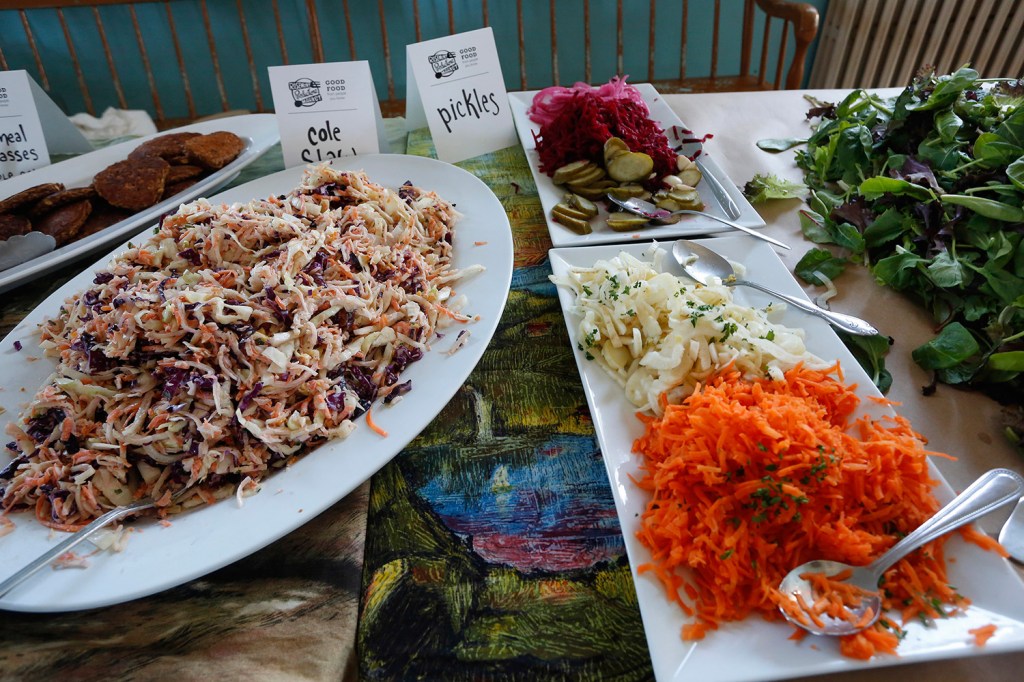
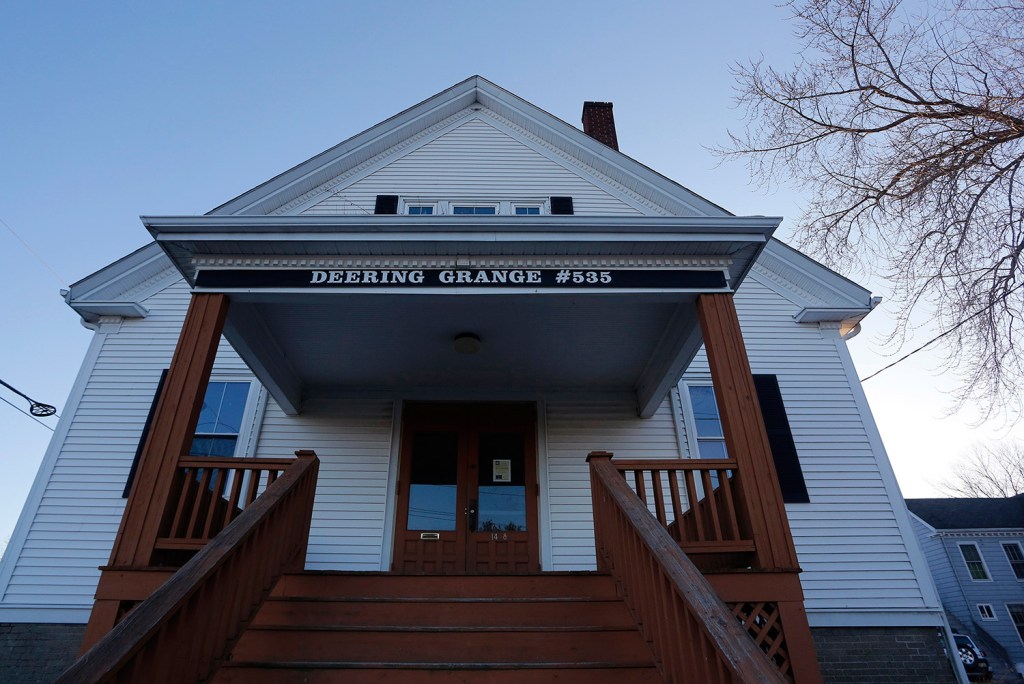
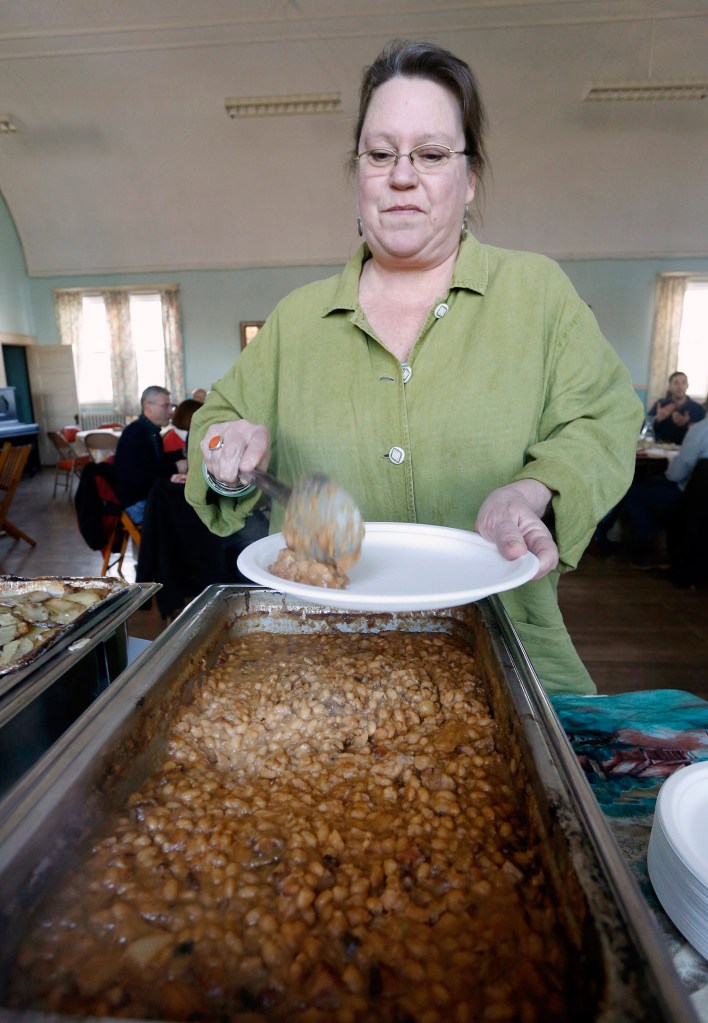
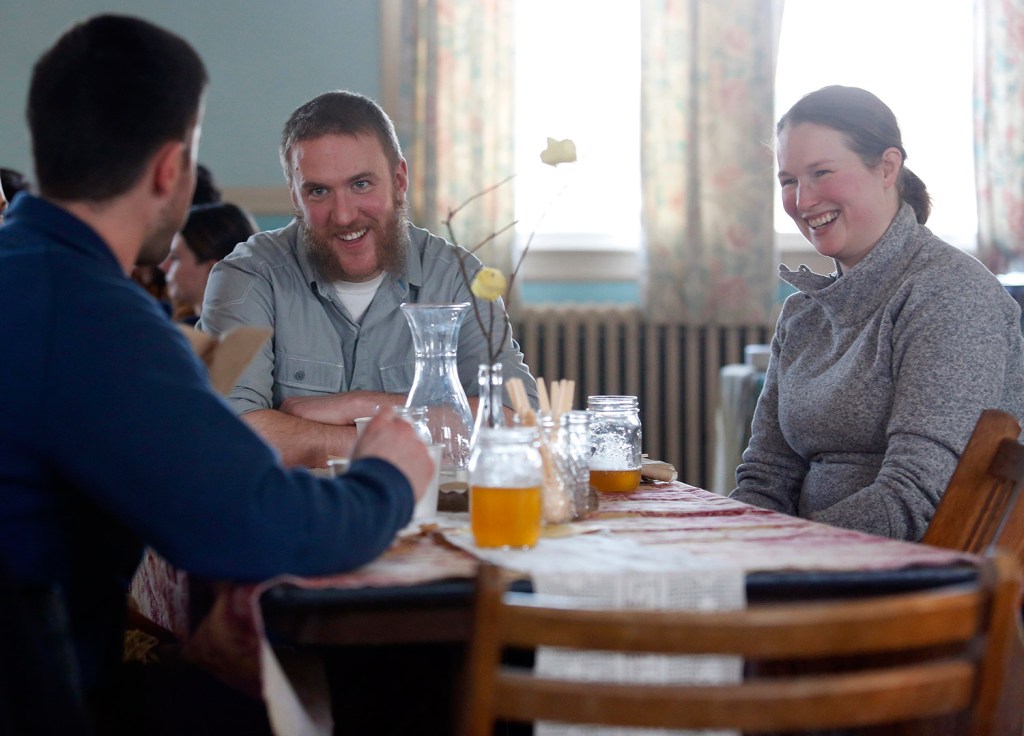
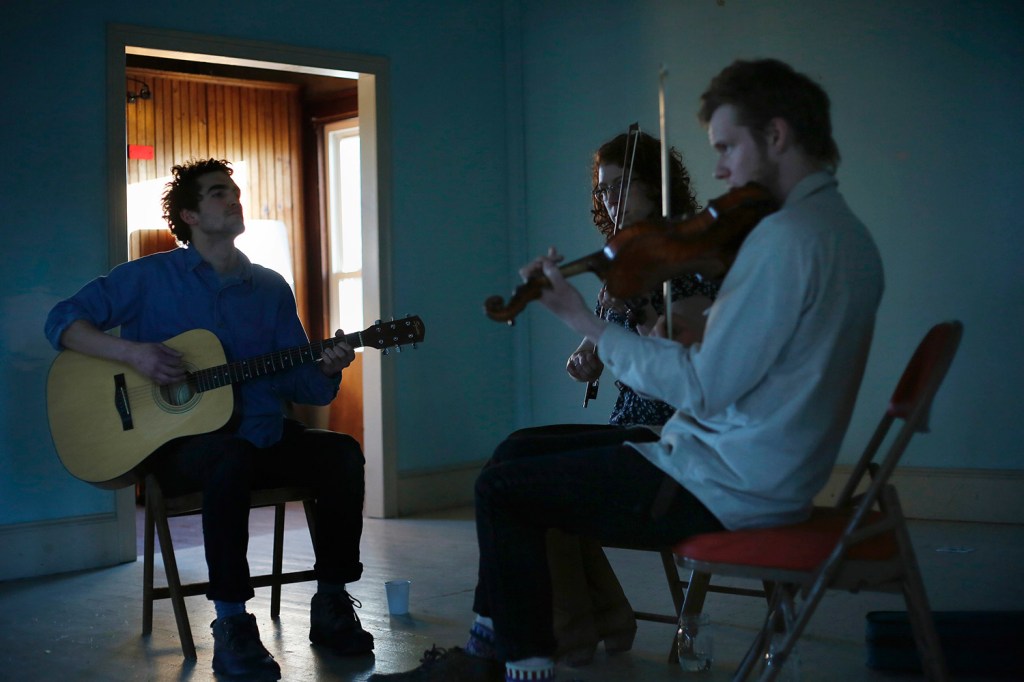
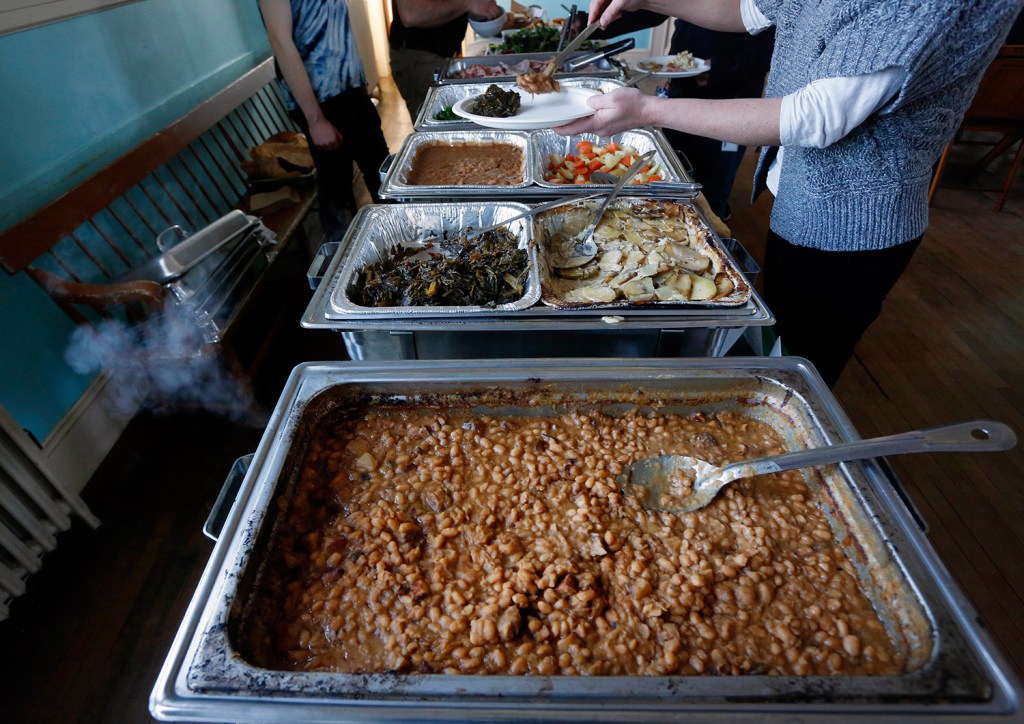
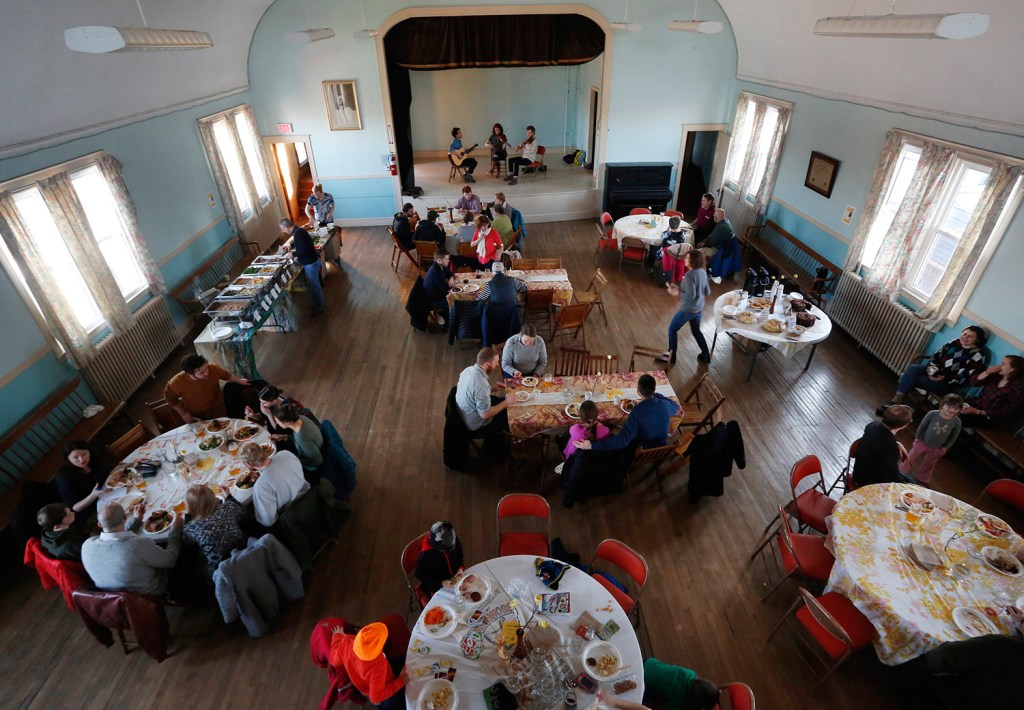
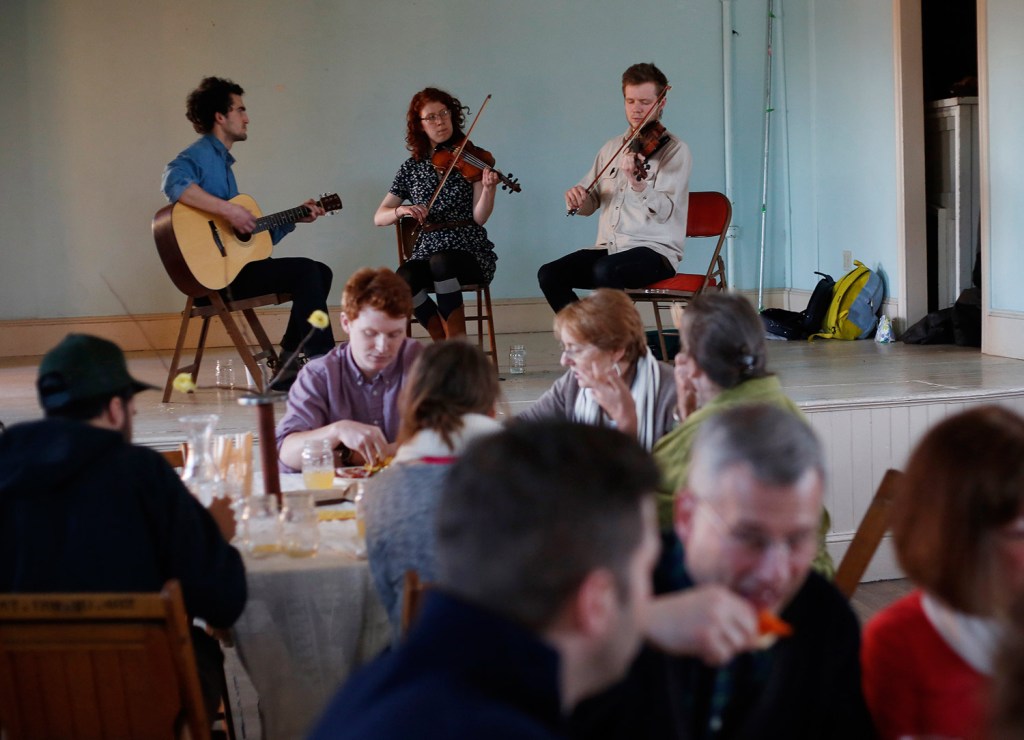

Success. Please wait for the page to reload. If the page does not reload within 5 seconds, please refresh the page.
Enter your email and password to access comments.
Hi, to comment on stories you must . This profile is in addition to your subscription and website login.
Already have a commenting profile? .
Invalid username/password.
Please check your email to confirm and complete your registration.
Only subscribers are eligible to post comments. Please subscribe or login first for digital access. Here’s why.
Use the form below to reset your password. When you've submitted your account email, we will send an email with a reset code.